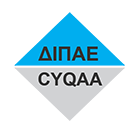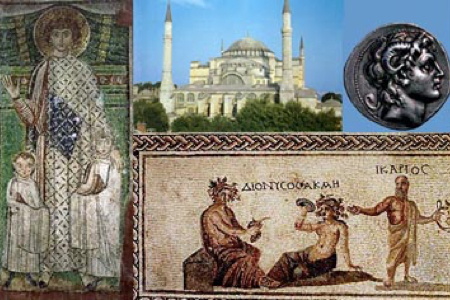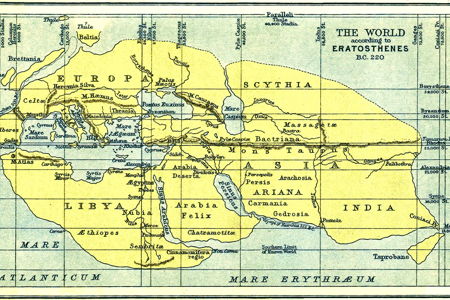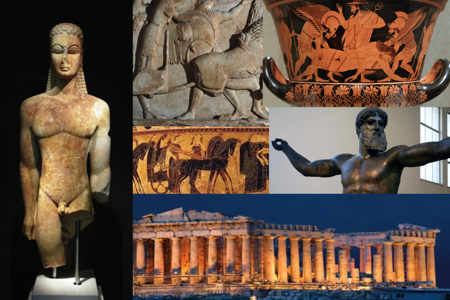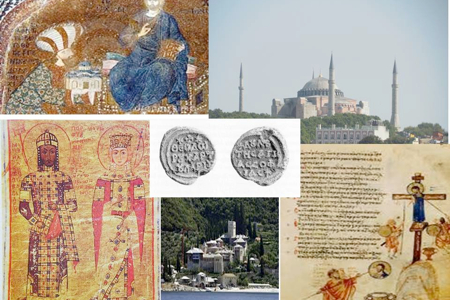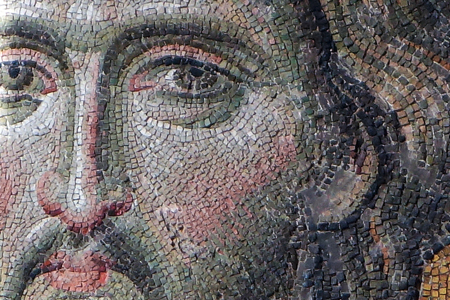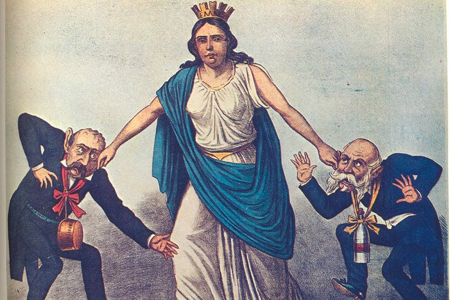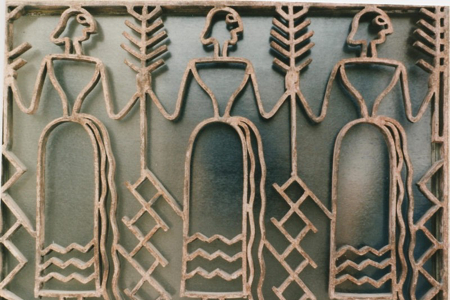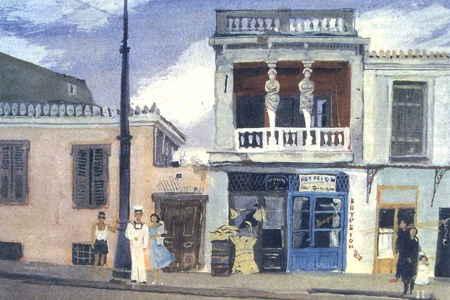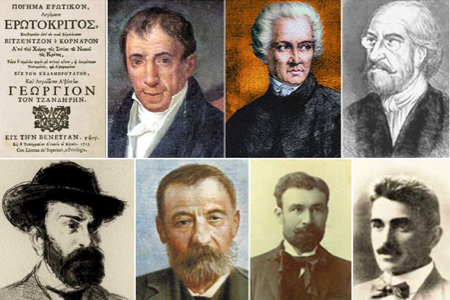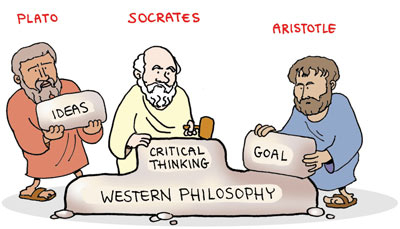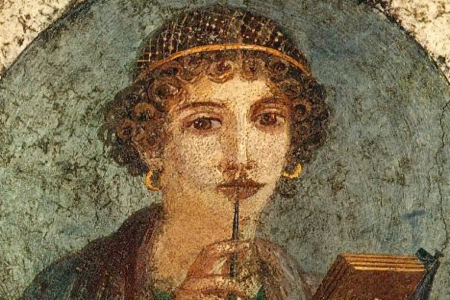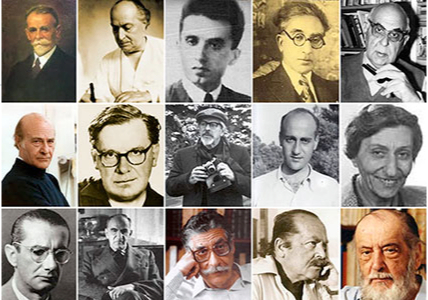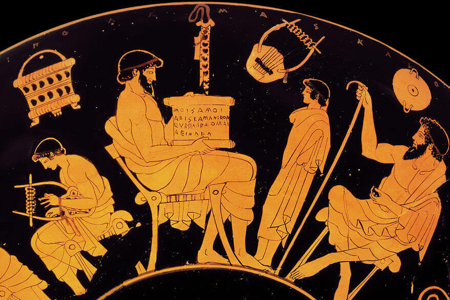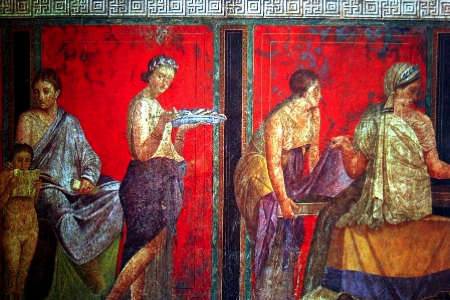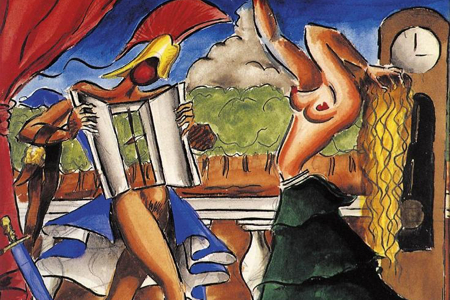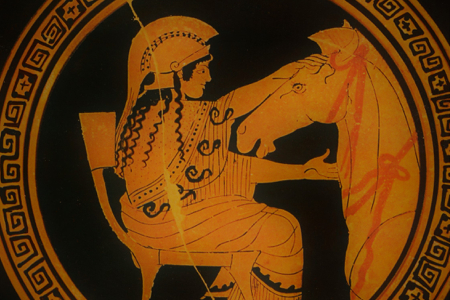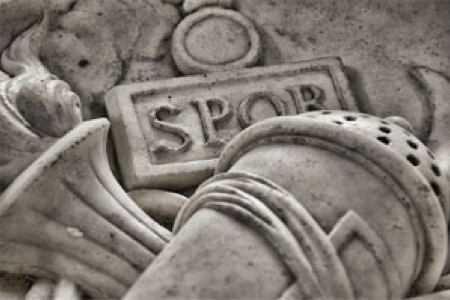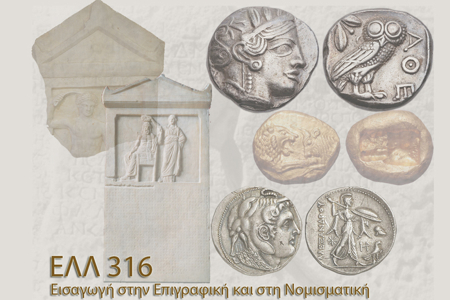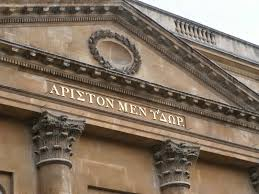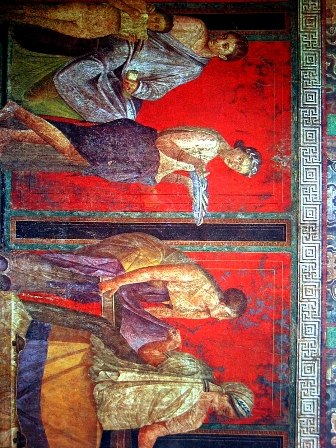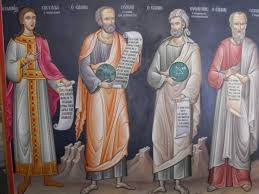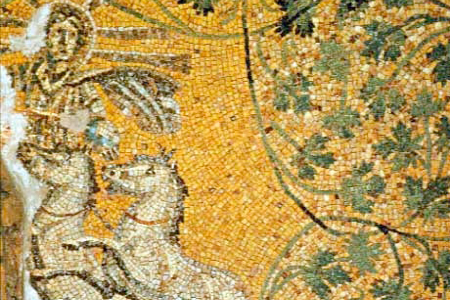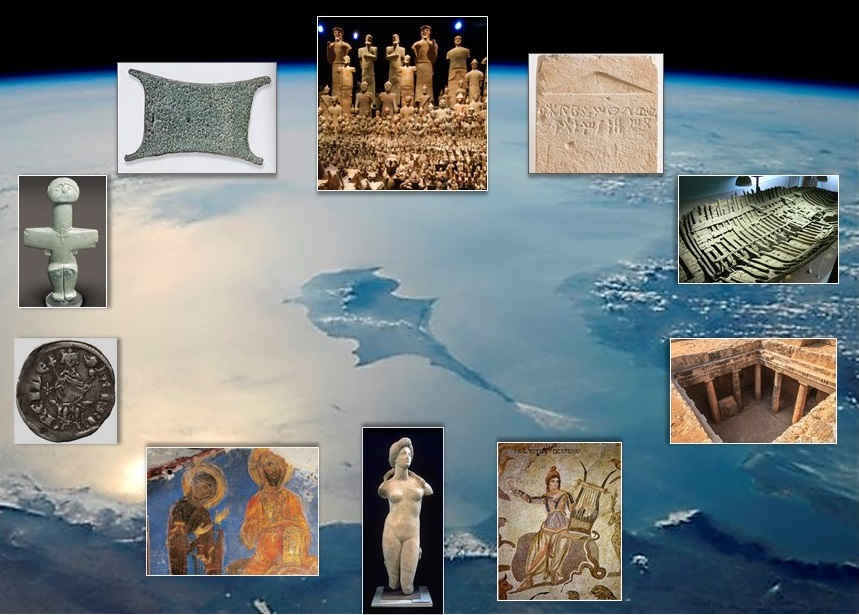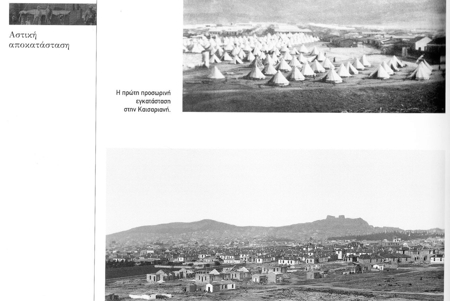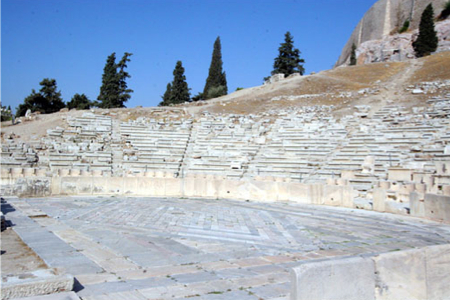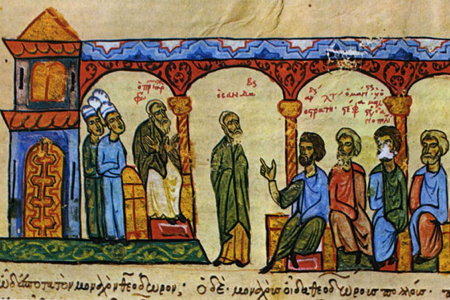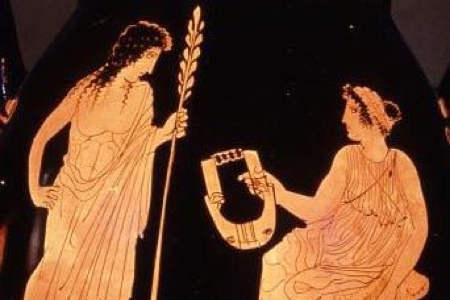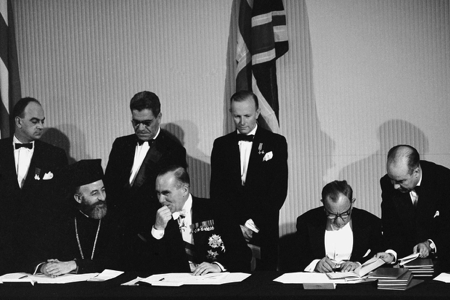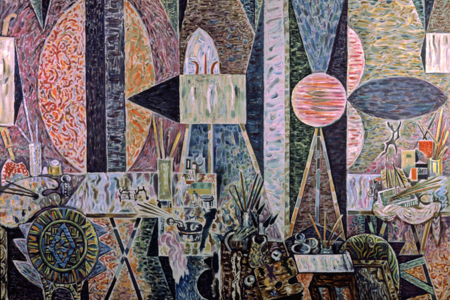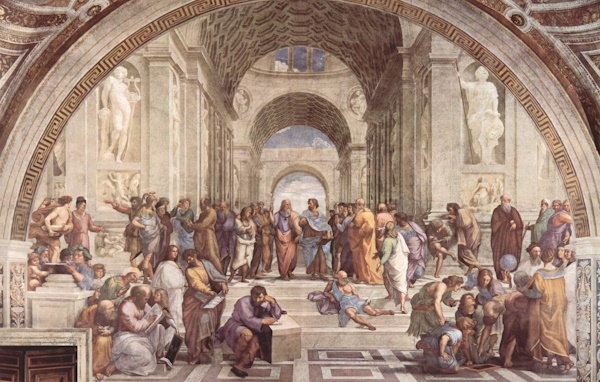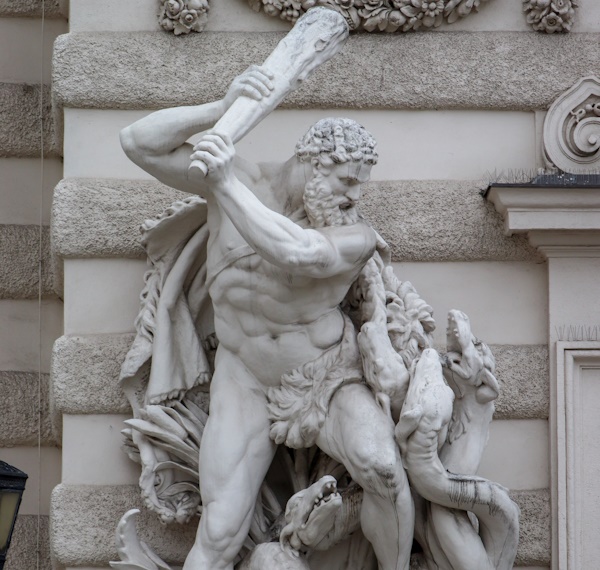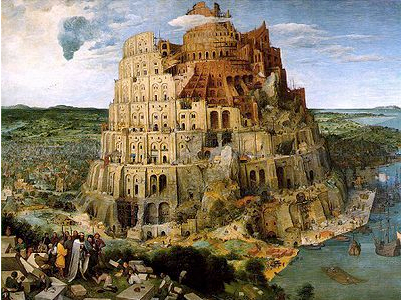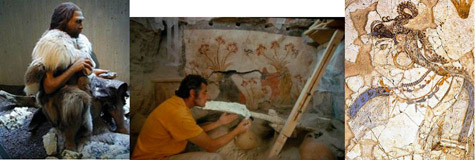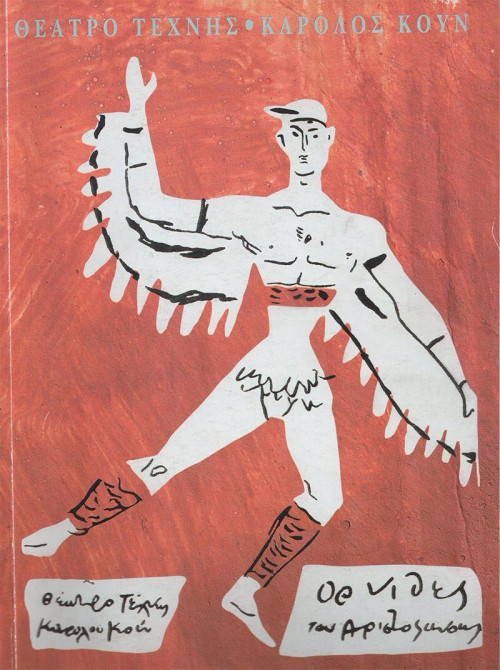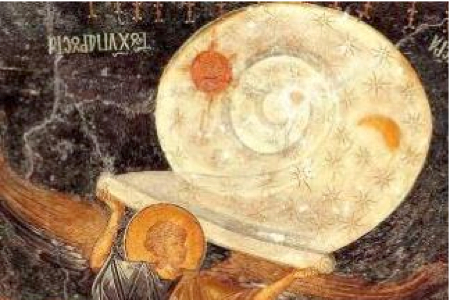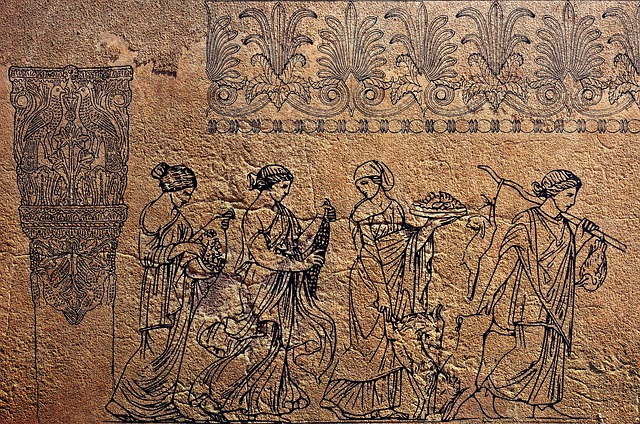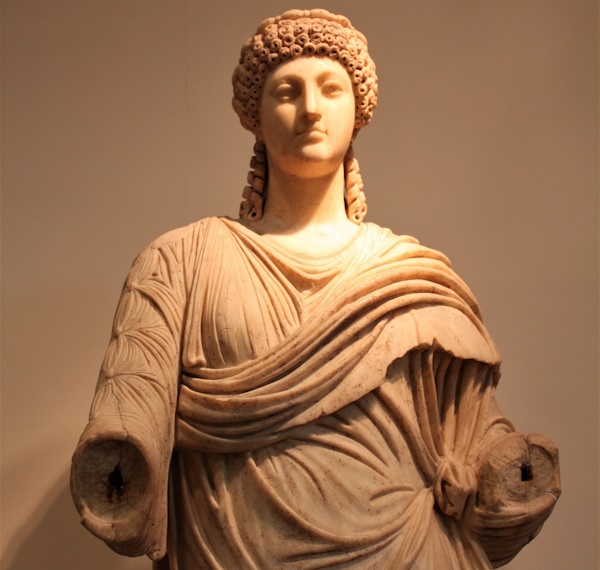
Bachelor
240 ects
Greek
Internationally Recognised
Online application submission

The Undergraduate Programme “Studies in Hellenic Culture” introduces students to the culture developed in the Greek-speaking world from antiquity to the present day, charting its metamorphoses and transformations, its contradictions and complexities. Through this critical lens, the Programme underscores the fundamental association between cultural processes and historical determinants.
The wider goal of the Programme is to build such cognitive, metacognitive, methodological, and epistemological foundations to allow students to delve deep into the cultural phenomena at large and to realise that what one calls ‘culture’ or ‘national/ cultural identity’ is, in fact, a construct of an often grievously antagonised and anxiety-ridden, ideological and political nature. The Programme emphasises the study of primary sources (texts, artworks, archaeological material, etc.) as a means of achieving theoretical awareness and honing critical sensibilities and research skills.
European Credit Units - ECTS: 240
Teaching Language: Greek
Level of Studies: Undergraduate
Title to be Awarded: Bachelor’s degree (BA)
The Programme graduates are employable in a variety of professional sectors, such as the culture industry ( organisations, museums, cultural services, etc.), tourism, education and the civil service. Moreover, students who have completed the Modules “Ancient Greek Language” (I, II) and “Latin Language” (I, II) are eligible to participate in the Republic of Cyprus state examination to be appointed in secondary education.
The programme is evaluated and accredited by:
The Open University of Cyprus (OUC), through its participation in the European project "Liaison Offices with the Labour Market", offers to students of all its programmes of study, the optional and free of charge Thematic Unit (i.e. Module) entitled "Industry Placement". This module provides students opportunities for a placement to gain professional experience in their particular field of study, and the hosting institution can be any public or private organisation operating in the Republic of Cyprus.
Each student has the right to participate in this offering once or twice during his / her studies, provided that s/he meets the required conditions.
Request more information by contacting the OUC Liaison Office here.
- Certificate of Secondary Education (‘Apolytirion’) or equivalent.
- Competence in the use of computers and basic IT resources (Internet, email, etc.)
- Sufficient command of the English language is not mandatory, but it is considered necessary.
The total administrative cost of the Programme is €6000 (from academic year 2025-2026). The cost of each Module (Thematic Unit) is €300. Administrative costs are charged per Module.
The total fees for non E.U. citizens is €9100 and the cost of each Module is €455.
PROGRAMME STRUCTURE
To obtain a bachelor's degree, successful attendance and examination in at least twenty (20) modules, twelve (12) core and eight (8) elective modules are required. The programme offers three (3) directions: (a) Literature, (b) History - Archeology - Art and (c) General. The student can choose up to three (3) core modules and up to two (2) elective modules per semester. Attendance of the modules offered in the first and second year of study is mandatory.
| Programme of Study Layout | ||||||
| Modules | Direction* | Semester | Required / Elective | Pre-requisite Modules | Workload | |
| Hours | ECTS | |||||
| ΕΛΛ111, Introduction to the Study of Civilization (Theory and Practice) | G | 1st | Required | 250-300 | 10 | |
| ΕΛΛ112, Ancient Greek History (1200 BCE - 330 CE) | G | 1st | Required | 250-300 | 10 | |
| ΕΛΛ113, Ancient Greek Art (1200 BCE – 330 CE) | G | 1st | Required | 250-300 | 10 | |
| ΕΛΛ121, Byzantine History (330 - 1453 CE) | G | 2nd | Required | ΕΛΛ111 | 250-300 | 10 |
| ΕΛΛ122, Byzantine Art (330 - 1453 CE) | G | 2nd | Required | ΕΛΛ111 | 250-300 | 10 |
| ΕΛΛ123, Modern Greek History I (1770 - 1909) | G | 2nd | Required | ΕΛΛ111 | 250-300 | 10 |
| ΕΛΛ211, Ancient Greek Literature (Archaic – Classical Periods) | G | 3nd | Required | ΕΛΛ111 | 250-300 | 10 |
| ΕΛΛ212, Modern Greek History IΙ (1909 - 1949) | G | 3nd | Required | ΕΛΛ111 | 250-300 | 10 |
| ΕΛΛ213, Modern Greek Literature I (16th-19th century) | G | 3nd | Required | ΕΛΛ111 | 250-300 | 10 |
| ΕΛΛ221, Ancient Greek Philosophy (Plato-Aristotle) | G | 4th | Required | ΕΛΛ111 | 250-300 | 10 |
| ΕΛΛ222, Hellenistic and Early Byzantine Literature (3rd c. BCE -7th c. CE) | G | 4th | Required | ΕΛΛ111 | 250-300 | 10 |
| ΕΛΛ223, Modern Greek Literature II (20th century) | G | 4th | Required | ΕΛΛ111 | 250-300 | 10 |
| ΕΛΛ311, Αncient Greek Ι | L | 5th | Elective | ΕΛΛ111, ΕΛΛ112, ΕΛΛ113 | 375-450 | 15 |
| ΕΛΛ312, Latin Ι | L | 5th | Elective | ΕΛΛ111, ΕΛΛ112, ΕΛΛ113 | 375-450 | 15 |
| ΕΛΛ313, Aspects of Modern Greek Literature (20th Century) | L | 5th | Elective | ΕΛΛ111, ΕΛΛ112, ΕΛΛ113 | 375-450 | 15 |
| ΕΛΛ321, Αncient Greek ΙΙ | L | 6th | Elective | ΕΛΛ111, ΕΛΛ121, ΕΛΛ122, ΕΛΛ123 | 375-450 | 15 |
| ΕΛΛ322, Latin ΙΙ | L | 6th | Elective | ΕΛΛ111, ΕΛΛ121, ΕΛΛ122, ΕΛΛ123 | 375-450 | 15 |
| ΕΛΛ323, Aspects of Ancient Greek and Byzantine Philosophy | L | 6th | Elective | ΕΛΛ111, ΕΛΛ121, ΕΛΛ122, ΕΛΛ123 | 375-450 | 15 |
| ΕΛΛ411, Αncient Greek Theatre Ι (Tragedy) | L | 7th | Elective | ΕΛΛ111, ΕΛΛ112, ΕΛΛ113, ΕΛΛ211, ΕΛΛ212, ΕΛΛ213 | 375-450 | 15 |
| ΕΛΛ412, Byzantine Literature (7th–15th century) | L | 7th | Elective | ΕΛΛ111, ΕΛΛ112, ΕΛΛ113, ΕΛΛ211, ΕΛΛ212, ΕΛΛ213 | 375-450 | 15 |
| ΕΛΛ413, Aspects of Ancient Greek Literature | L | 7th | Elective | ΕΛΛ111, ΕΛΛ112, ΕΛΛ113, ΕΛΛ211, ΕΛΛ212, ΕΛΛ213 | 375-450 | 15 |
| ΕΛΛ420, Ancient Greek Myth and Modern Greek Literature | L | 8th | Elective | 375-450 | 15 | |
| ΕΛΛ421, Αncient Greek Theatre IΙ (Comedy) | L | 8th | Elective | ΕΛΛ111, ΕΛΛ121, ΕΛΛ122, ΕΛΛ123, ΕΛΛ221, ΕΛΛ222, ΕΛΛ223 | 375-450 | 15 |
| ΕΛΛ423, Linguistics | L | 8th | Elective | ΕΛΛ111, ΕΛΛ121, ΕΛΛ122, ΕΛΛ123, ΕΛΛ221, ΕΛΛ222, ΕΛΛ223 | 375-450 | 15 |
| ΕΛΛ410, Αncient Greek ΙΙI | L | 8th | Elective | ΕΛΛ111, ΕΛΛ112, ΕΛΛ113 | 375-450 | 15 |
| ΕΛΛ314, Aspects of Ancient Greek Art | H.A.A. | 5th | Elective | ΕΛΛ111, ΕΛΛ112, ΕΛΛ113 | 375-450 | 15 |
| ΕΛΛ315, Aspects of Roman History | H.A.A. | 5th | Elective | ΕΛΛ111, ΕΛΛ112, ΕΛΛ113 | 375-450 | 15 |
| ΕΛΛ316, Introduction to Epigraphy and Numismatics | H.A.A. | 5th | Elective | ΕΛΛ111, ΕΛΛ112, ΕΛΛ113 | 375-450 | 15 |
| ΕΛΛ324, Aspects of the History of Late Antiquity | H.A.A. | 6th | Elective | ΕΛΛ111, ΕΛΛ121, ΕΛΛ122, ΕΛΛ123 | 375-450 | 15 |
| ΕΛΛ325, History of Ancient and Medieval Cyprus | H.A.A. | 6th | Elective | ΕΛΛ111, ΕΛΛ121, ΕΛΛ122, ΕΛΛ123 | 375-450 | 15 |
| ΕΛΛ326, Aspects of Economic and Social History of the Modern Greek World | H.A.A. | 6th | Elective | ΕΛΛ111, ΕΛΛ121, ΕΛΛ122, ΕΛΛ123 | 375-450 | 15 |
| ΕΛΛ414, Modern History of Cyprus (1878 - 1974) | H.A.A. | 7th | Elective | ΕΛΛ111, ΕΛΛ112, ΕΛΛ113,ΕΛΛ211, ΕΛΛ212, ΕΛΛ213 | 375-450 | 15 |
| ΕΛΛ415, Modern Greek Art: Sculpture-Painting | H.A.A. | 7th | Elective | ΕΛΛ111, ΕΛΛ112, ΕΛΛ113, ΕΛΛ211, ΕΛΛ212, ΕΛΛ213 | 375-450 | 15 |
| ΕΛΛ418, Political Thought and Action in Ancient Greece | H.A.A. | 7th | Elective | ΕΛΛ111, ΕΛΛ112, ΕΛΛ113 | 375-450 | 15 |
| ΕΛΛ424, Archaeological Theory and Practice | H.A.A. | 8th | Elective | ΕΛΛ111, ΕΛΛ121, ΕΛΛ122, ΕΛΛ123, ΕΛΛ221, ΕΛΛ222, ΕΛΛ223 | 375-450 | 15 |
| ΕΛΛ425, Art and Theatre in Modern Greece and Cyprus | H.A.A. | 8th | Elective | ΕΛΛ111, ΕΛΛ121, ΕΛΛ122, ΕΛΛ123, ΕΛΛ221, ΕΛΛ222, ΕΛΛ223 | 375-450 | 15 |
| ΕΛΛ426, Aspects of Byzantine Art | H.A.A. | 8th | Elective | ΕΛΛ111, ΕΛΛ121, ΕΛΛ122, ΕΛΛ123, ΕΛΛ221, ΕΛΛ222, ΕΛΛ223 | 375-450 | 15 |
| ΕΛΛ428, Ancient Greek religion and ritual | H.A.A. | 8th | Elective | ΕΛΛ111, ΕΛΛ121, ΕΛΛ122, ΕΛΛ123 | 375-450 | 15 |
| ΕΛΛ499, BA Thesis | G | 8th | Elective | 375-450 | 15 | |
| Total | 6000-7200 | 240 | ||||
| Industry Placement | ||||||
| ΕΛΛ495, Industry Placement (1st placement) | Elective | 5 | ||||
| ΕΛΛ496, Industry Placement (2nd placement) | Elective | 5 | ||||
* Directions: G-General, L-Literature, H.A.A.-History/Archeology/Art
Direction: General
It combines modules from the above two directions of Literature and History-Archeology-Art
Each student can optionally enrol, once or twice, in the free of charge Thematic Module "Industry Placement", which awards five (5) ECTS. The module offers a structured placement, designed to offer students specific industry and professional experience in their particular field of study, and to allow them to build their skills in a real-world setting.
ΕΛΛ495 - Industry Placement (1st placement)
ΕΛΛ496 - Industry Placement (2nd placement)
Request more information by contacting the OUC Career and Liaison Office here.
If you would like to request more information about the "Industry Placement" Thematic Unit / Module ELL495 and ELL496, please contact the OUC Liaison Office here.
Academic Personnel
Georgios Deligiannakis, Associate Professor, Module coordinator,
Stephanos Efthymiadis, Professor, Module coordinator,
Antonis Petrides, Associate Professor, Programme Director,
 |
Ελισάβετ Κιούρτη (Elisavet Kiourti) | +35722411923 |
Ώρες γραφείου/Academic Consultation Hours: Δευτέρα/Monday – Πέμπτη/Thursday 08:00 - 12:00 |
CV |
Administrative personnel: Charoula Christofi (Temporary Office Assistant)
Email:
Tel. 00357-22411743





